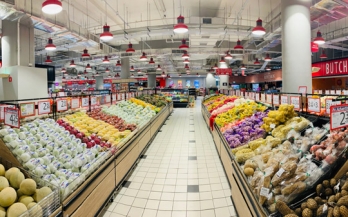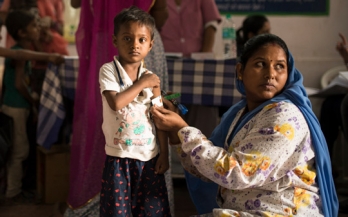World Food Safety day in 2020 falls during an ongoing pandemic that has sickened millions, killed hundreds of thousands and cost trillions of USD. The emergence of COVID-19 has been associated with wet or traditional markets, and there are many studies, reports and blogs on how it is affecting food systems.
Scares involving food contamination tend to make headlines when they occur in high-income countries. These rare outbreaks are all the more dramatic because consumers usually take for granted that the food they purchase will be safe: in high-income countries, governments have rigorous food safety standards with staff and budgets to support their enforcement, and many major retailers establish their own standards and procedures for ensuring that the food on their shelves is safe to eat.
As COVID-19 continues to impact millions of lives and jobs around the world, it is also making our global food system increasingly vulnerable. The poverty, malnutrition and food insecurity that were already challenges before the pandemic – with 820 million people chronically hungry in 2018 – are set to grow as a result of it.
On Tuesday 28 January 2020, the atmosphere at the Indonesian Ministry of Health felt different than usual. It was a very special day, as it marked the 60th National Nutrition Day. There was a lively and dynamic ambience at the Ministry of Health as the place was filled with visitors and the fantastic live performance of the marching band from Jakarta’s Madrasah Ibtidaiyah Negeri 16 school filled the air with great energy.
Since the Covid-19 pandemic and associated control measures began affecting food systems around the world, many of us who care about nutrition and livelihoods have been thinking anxiously about food prices: would they be affected? If so, how badly, for which foods, and for how long? Food prices are important for several reasons.
"Biblical". That was the word that the world’s press needed to (finally) run stories about the impacts of the COVID-19 crisis on food and nutrition. Thank you to the Executive Director of the World Food Programme, David Beasley, for the turn of phrase.
In a commendable move to combat the effects of COVID-19, the Government of Bangladesh has announced a bailout package to support Small and Medium Enterprises (SMEs) by partially covering their interest payments for the current fiscal year until 30th June 2020. But the eventual impact of COVID19 pandemic and its potentially devastating impact on food systems, especially on the SMEs that are the backbone of food supplies.
Seizing an opportunity to provide the nutritious foods needed to help keep people healthy during a pandemic came naturally to Rani, who is used to seeing potential where others might miss it. Living in Sukabumi, Rani and her mother, Imelda, established in 2012 a small business processing fish and vegetables into healthy snacks.
With the spread of COVID-19 we find ourselves plunged into a global health crisis. By most accounts we are only at the early stages of the pandemic so it is going to reshape economy, society and politics, probably permanently.
Today marks International Women’s Day – an occasion to reflect on the contributions of women worldwide and, for GAIN, to reflect on how we are working to engage and empower women through our work. Over the past decade, there has been growing focus on empowering women in agriculture - and with good reason. Women’s participation in agriculture varies by region, but in many African countries, women make up close to half of the agricultural labour force.










